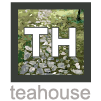User talk:Crafangau
Welcome!
[edit]Welcome to Wikipedia! I hope you enjoy the encyclopedia and want to stay. As a first step, you may wish to read the Introduction.
If you have any questions, feel free to ask at the Teahouse.
Here are some more resources to help you as you explore and contribute to the world's largest encyclopedia...
Finding your way around:
|
Need help?
|
|
How you can help:
|
|
Additional tips...
|
User:Crafangau Please stop changing British to Welsh ,It is post to say British not Welsh. Untamed1910 (talk) 00:41, 18 September 2024 (UTC)
- "supposed"? Crafangau (talk) 15:09, 20 September 2024 (UTC)
Welsh sources for Middle-earth
[edit]Hi, I've had to undo quite a bit of what you've just added to Middle-earth articles, for several reasons. The most immediate is simply that you have provided fragmentary citations with no page numbers, something that can probably be fixed easily enough (but more care is required). More serious, I'm afraid, is the uncritical acceptance of bold claims. For instance, the linkage between "Culhwch and Olwen" and Beren and Lúthien is a good deal more slippery than several enthusiastic critics have imagined; more experienced scholars like Tom Shippey have roundly criticised the too eager identification of small elements of one story in another as not proving anything. Tolkien gave a clear warning in "The monsters and the critics" that input materials could be extensively "boiled" – transformed – in the writing of a tale; and that since many folktales share similar elements (the disapproving father...), it can be difficult or impossible to disentangle what came from where. We editors therefore need to be rather careful in what we say, and it behoves us to find a selection of sources rather than hoping that the first one is actually correct. It's all very well to say that Mumblechops and Littleknown (2023) say that there is one point of resemblance between folktale A and Tolkien tale B, but that is a primary source; far better is to locate a reliable secondary source that discusses other research, or at least to find points of agreement between scholars if such a source isn't available. All the best, Chiswick Chap (talk) 19:57, 21 September 2024 (UTC)
- Most of the edits I did were formatting related, since the "Influences" section is rather messy.
- The new citations that I did provide myself were scholarly and did include page numbers. The connection between "Culhwch and Olwen" and Beren and Lúthien does not come from an "enthusiastic critic" but rather Professor Carl Phelpstead of Cardiff University, in a book published by The University of Chicago Press and University of Wales Press.
- If you disagree with that connection, wouldn't it be best to include it with a caveat, rather than dismiss the work entirely? Crafangau (talk) 16:54, 22 September 2024 (UTC)
Your submission at Articles for creation: List of Psychedelic Animations (December 1)
[edit]
- If you would like to continue working on the submission, go to Draft:List of Psychedelic Animations and click on the "Edit" tab at the top of the window.
- If you do not edit your draft in the next 6 months, it will be considered abandoned and may be deleted.
- If you need any assistance, or have experienced any untoward behavior associated with this submission, you can ask for help at the Articles for creation help desk, on the reviewer's talk page or use Wikipedia's real-time chat help from experienced editors.

|
Hello, Crafangau!
Having an article draft declined at Articles for Creation can be disappointing. If you are wondering why your article submission was declined, please post a question at the Articles for creation help desk. If you have any other questions about your editing experience, we'd love to help you at the Teahouse, a friendly space on Wikipedia where experienced editors lend a hand to help new editors like yourself! See you there! Significa liberdade (she/her) (talk) 02:33, 1 December 2024 (UTC)
|
